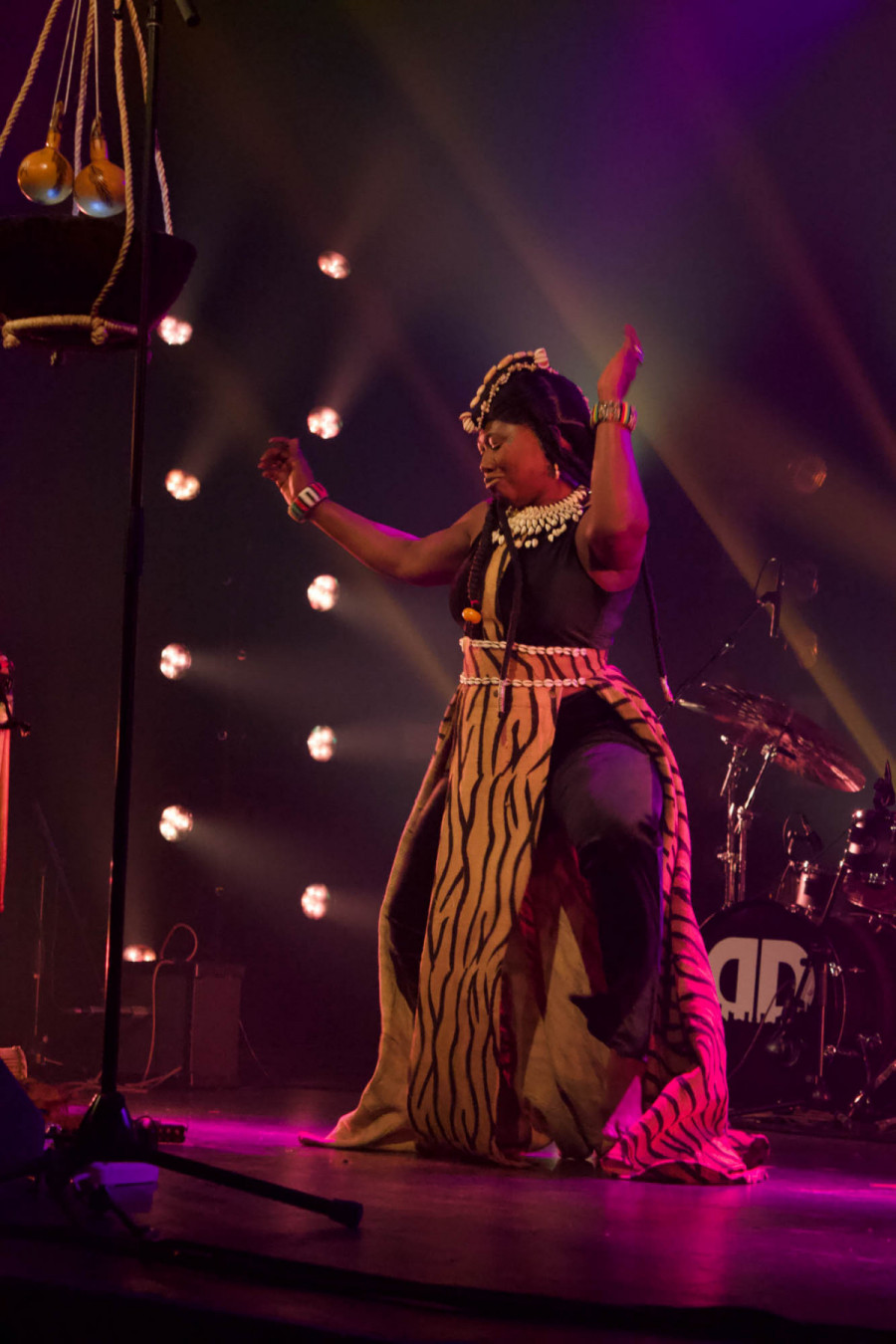Djely Tapa on music history and a future without borders
Tapa launches a new album and a new path for African storytelling
Djely Tapa’s voice carries the roots of Mali into the Canadian music sphere.
Originally from Mali, the Canadian artist won the Canadian Juno Award for World Music Album of the Year with her debut album, Barokan, in 2020. She has since performed over 100 concerts across three continents.
Tapa comes from a griot family, a lineage of West African storytellers, musicians and historians who preserve and pass down cultural traditions, history and genealogies through oral performance.
“We are guardians of culture,” Tapa said. “We have this duty to transmit, to remember and to search among historical facts that can help us in the present and in the future.”
After 15 years of collaborating in various bands and projects, Tapa felt the need to go solo to express herself more fully. As a born griot, her music is heavily intertwined with communication.
“I had messages to deliver and battles to fight,” Tapa said. “I couldn’t use communal projects to express my own voice.”
This year, she launched her second album, Dankoroba, an Afrofuturist project that embraces Black history while ensuring the authenticity of its future.
“Our collective amnesia has ended and we accept our history,” Tapa said, “our future is underway.”
At her album launch, hosted by Nuits d’Afrique at Le National Theatre on Oct. 19, many attendees, particularly those of African descent, felt an emotional connection to Tapa’s personality and art.
“This music in itself is a personality,” said Abou Diallo, a Montrealer originally from Côte d’Ivoire. “It allows us to be seen. We resonate with her words.”
Lalla Haidara, originally from Mali, knows the Tapa family personally from back when they lived in West Africa.
“From griot to artist, we have known her. But personality-wise, this woman is wonderful,” Haidara said. “It is the woman and mother that she is that we appreciate and admire immensely.”
Dankoroba was a way for Tapa to develop her style. While her first album showcased her artistic colours and interests, her second affirms these choices, displaying the maturity she has cultivated in her music.
“As artists, we are influential,” Tapa said. “The basis of my art, my history and my heritage is to touch upon subjects that concern us today.”
For Tapa, her tradition is the basis of everything, from her music to her artistic approach.
Tapa’s vision for Afrofuturism in her music centers on preserving African values and writing history from an African perspective.
“We have to have the real history out there written by us and arrive at a future where the story is written not by colonizers or aggressors, but by the people who live there,” Tapa said.
Tapa’s music is not limited to one specific community or any place on Earth. Her art speaks to everyone, as it touches upon themes that affect all humans worldwide.
“The subjects that touch me profoundly are peace, love, support, social cohesion,” Tapa said. “My music speaks to the heart of the human.”







